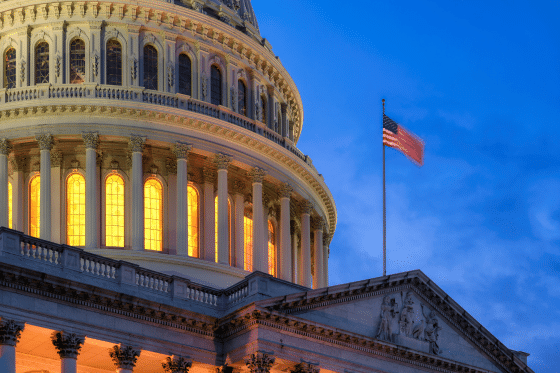|
Billions for Big Business in House Energy Plan Washington, D.C. – An energy bill about to be debated in Congress would do nothing to solve America's energy woes and would dish out more than $38 billion in government handouts to some of the nation's most profitable energy companies, according to a national budget watchdog group. “There is more money in this bill for special interests than there is corn in Iowa,” said Jill Lancelot, Legislative Director of Taxpayers for Common Sense. “It should be renamed ‘Aid for Dependant Energy Corporations.” The House bill, the “Secure America's Future Energy Act of 2001 (S.A.F.E),” offers massive tax credits and new government spending for oil, gas, nuclear, coal and electric utilities, but offers little to taxpayers and consumers, according to Lancelot. “It’s a blitzkrieg of new federal research programs and a corporate accountant’s dream with billions in major new tax breaks for big energy,” continued Lancelot. New production incentives are unneeded and could lead to producing a glut in the energy marketplace, according to Lancelot. According to the Energy Information Agency (EIA), there is more than 90,000 megawatts of new electricity that should come on line by 2002. The free market has responded to this year’s energy crunch and has invested billions in new production capacity. This bill is being proposed as the oil industry is posting record profits. In the first quarter of this year, Exxon-Mobil reported profits of $5 billion – the most ever earned by the company. Chevron and Texaco have also reported sharp profit increases. “We shouldn’t be giving out record subsidies to companies with record profits,” said Lancelot. “These companies don’t need government handouts.” The legislation would spend billions on fossil energy research and development, according to TCS, including $238 million for oil and gas research for fiscal year 2002. The bill would also provide billions in subsidies for research and development for the nuclear industry for fiscal year 2002, including $30.2 million to effort to “beef up” academic programs in nuclear engineering and science around the country, $20 million to research and develop Generation IV nuclear power plant technologies within the United States and $10 million to establish an “Office of Spent Nuclear Fuel Research” within the Department of Energy that would oversee research and development activities on the disposal and reprocessing of spent nuclear fuel. The legislation also calls for a $25 million increase over fiscal year 2001 funding levels for the Nuclear Energy Research Initiative (NERI) and $15 million for the Nuclear Energy Plant Optimization (NEPO) program. Much of the funding from NERI and NEPO go to the largest and most profitable energy companies such as General Electric and Westinghouse, said Lancelot. The bill also provides $172 million in subsidies for the extremely profitable coal industry’s research and development efforts for fiscal year 2002. Subsequent appropriations for coal would cost taxpayers $909 million over five years. The bill would also provide funds for a new round of clean coal technology projects that would cost taxpayers $2 billion. Other highlights include:
“It is patently ridiculous to ask taxpayers to foot the bill for this kind of corporate welfare, ” concluded Lancelot. **Read the Secure America's Future Energy Act of 2001 (S.A.F.E) here. |











